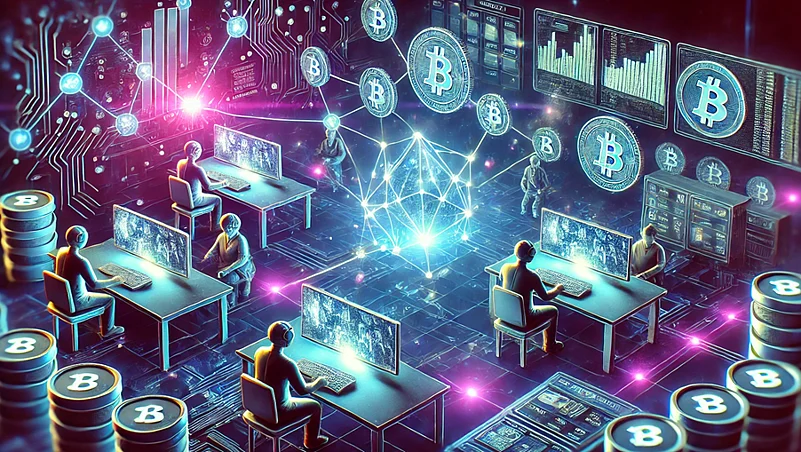The world of cryptocurrency is a world based on decentralization, security, and openness. At the center of the virtual world is a very important group of players known as miners. The title may conjure up visions of men digging for gold and other valuable substances out of the earth, but mining in the world of cryptocurrency is very different. Miners are essentially tasked with the technical maintenance of blockchain networks, transaction validation, and the overall system operation of cryptocurrencies.
Learning about Cryptocurrency Mining
Cryptocurrency mining is one of the methods through which new digital money is created, and payments are verified on a blockchain network. Centralized control such as that borrowed by traditional financial institutions to authenticate payments is used, but cryptocurrencies employ an open-source distributed ledger system known as the blockchain. The system secures payment transactions but is not tamper-proof or tamper resistant.
Miners are validators in the process. They use computer processing power to locate hard mathematical problems, thus allowing them to add new blocks of transactions into the blockchain. This process, referred to as proof-of-work (PoW), is power-intensive but stabilizes the network and decentralizes it.
How Miners Secure the Network
Miners' primary function is to secure the cryptocurrency network. The transactions on the network must be verified and placed in a block before they can be added to the blockchain forever. Miners compete to solve complex puzzles first that verify the transactions. The winner of the puzzle gets to add the next block and is rewarded with newly minted cryptocurrency as a motivation.
This system protects against such exploits as double spending, wherein a user attempts to spend the same electronic money twice. Because mining is so power- and energy-intensive, it is extremely difficult for anyone to reverse previous transactions or take over the network without an enormous investment.
The Incentives for Miners
Mining is not a non-profit but a profitability-driven enterprise for serving the network; it is a profitable venture. Miners get compensated in two significant ways:
Block Rewards: A miner is rewarded with a group of cryptocurrencies every time they add a new block into the blockchain. This encourages individuals to secure the network since they are being financially rewarded for their service.
Transaction Fees: Besides block rewards, the miners are also paid in the form of transaction fees taken from the transactions that are contained in the block. With the passage time due to growing cryptocurrency networks, block rewards decrease while transaction fees become a vital component of miner revenues.
The Energy Debate and Alternative Mining Approaches
Although proof-of-work mining has been beneficial to cryptocurrency networks as far as securing them is concerned, it has come under scrutiny based on the amount of energy used. Calculation is very power-intensive, which is an environmental issue. Alternatives for mining systems, such as proof-of-stake (PoS), have therefore been suggested that avoid power-intensive calculations but secure networks.
These new solutions divert energy required in confirmation away from energy-sucking devices to owners who own and store their cryptocurrency as collateral, propelling energy consumption to second place. Despite all that, proof-of-work remains far and away the most common agreement mechanism employed in most anchored digital currencies because of its intensive security condition and vulnerability-resistance aspect.
Conclusion
The miner is the cornerstone of cryptocurrency protocols, securing the transactions, storing them in reserves, and guaranteeing that they are not diverted for ill will. They are not there simply to provide an incentive but to enable the arrival of the decentralized function of blockchain technology and ensure digital financial systems are secure. As the world looks for cryptocurrency potentiality, the miner's role will also keep evolving and shaping the future of decentralized finance. To be aware of their contribution is to value even more the security, transparency, and innovation blockchain provides to the global economy.














